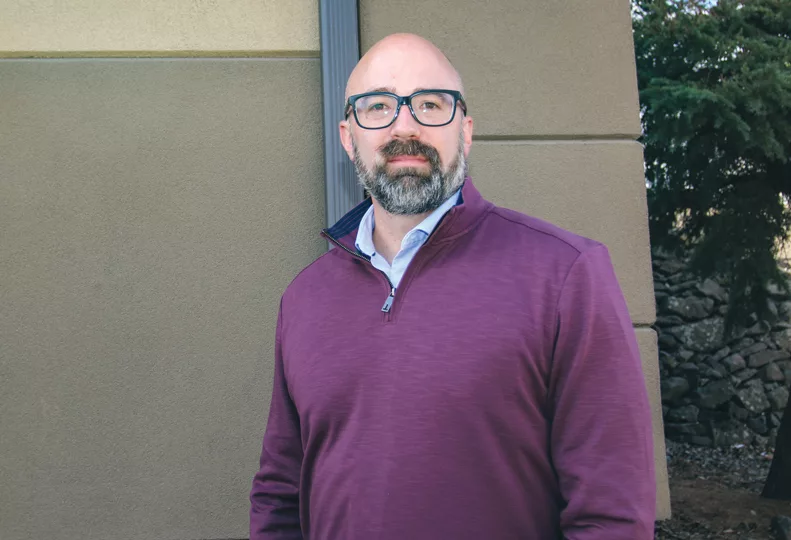Parting Thoughts with The Inlander's Jacob Fries
Former Editor, Pacific Northwest Inlander

Longtime Pacific Northwest Inlander editor Jacob Fries has left the publication to be the executive director of InvestigateWest, a nonprofit based in Seattle with a focus on reporting critical issues throughout the Pacific Northwest.
Fries is a Spokane native. He grew up in Spokane Valley and attended Central Valley High School. He was one of the valedictorians his graduating year and went on to study journalism at Northwestern University, in Chicago. As a student, he had journalist internships in San Francisco, Seattle, and Boston.
After graduating from Northwestern, he worked at the New York Times for a year where he covered the police department, trends, and breaking news, including the 9/11 attacks.
He then went on to freelance in Guatemala for U.S.-based papers. His last venture before landing at the Inlander was as a staff writer at The Tampa Bay Times, where he reported criminal justice issues, breaking news, and features.
In 2003, Fries’ mother was dying of cancer and prompted his move home to Spokane. During that time, he became a freelance writer for the Inlander where he met Ted McGregor, the paper’s founder and publisher. After Fries’ mother had passed and he had returned to Florida, McGregor called and asked if he would like to manage the publication’s news coverage.
Fries became the Inlander editor in January of 2008.
In his new position at InvestigateWest, Fries will work remotely from his home on the South Hill. During that transition, the Journal sat down with Fries to talk about his tenure at Spokane’s alternative weekly.
What was the Inlander like when you first arrived?
It was an arts-heavy publication and still is, covering arts and culture. I brought a lot more reporting to it, and that became my priority.
When I first arrived in 2008, we had a pretty good team, but also a team that came from nontraditional paths who maybe didn’t have the journalistic background or previous work at daily newspapers. Really, the staff has been transformed from a scrappy, very smart, talented but not super journalistically based, to one that is all journalists.
Was that part of your mission when you took over?
For sure. I went to journalism school, and I did all the internships. I knew how much that professional development mattered, so I really wanted a high level professional ambitious staff. The people I was always attracted to were the people who didn’t want to stay at the Inlander forever. They wanted to learn, grow, and move on. I had some staff members describe it as going back to get their master’s again.
Considering your background in critically based journalism, did you also have a mission to do more investigative work at the Inlander?
Over the years, I feel the Inlander has done a lot of investigative, longform, and lots of accountability journalism that has had an impact. Journalism where we can point to and say, “That lawsuit was filed, and those people are not in prison anymore.” And I would not really be bragging but actually be telling the truth about what we accomplished.
I do think the paper has that in its DNA, but I am excited about InvestigateWest allowing me to focus more exclusively on that type of journalism. While I love community journalism and exploring all the things the community has to offer, I do like to focus on the harder-hitting news. That’s where my background is. I only worked at daily newspapers before coming here, so this is a return to that focus.
What was your biggest accomplishment at the Inlander?
For me personally, the reason I stayed as long as I did, is I had the opportunity to grow professionally in lots of ways. I got to work on the staff and build the staff the way I wanted it to look. I got to work on technology and the website. I got to develop and cultivate a music festival. The opportunity to do lots of things was really rewarding to me.
But in the end, the thing I brag about is the hard-hitting journalism that hopefully resonated with readers and policy makers and in some way made the world slightly better.
One of our most in-depth series that we did was State of Mind. In one year, we did over 50 stories on mental health, specifically. This included looking at suicides in the jail and how the local state officials weren’t meeting the metrics of timely evaluation of people who needed a mental evaluation in the jail and ended up killing themselves.
I personally also did a story called Reasonable Doubt looking at the Spokane County Sheriff’s Office investigation that led to three people in prison facing decades-long sentences. Ultimately, they were exonerated. The Innocence Project at the University of Washington took up the case after our story was published and ultimately set them free.
Any other ambitions as a writer?
I have a few memoir, personal stories that I would like to write, and I’ve dabbled in fiction with the small writers’ community that we have here with Jess Walter and Sam Legion. In the end, if I can spend all my days doing journalism that I’m proud of, I think I’m satisfied by that.
Like this story?
You’ll love the rest. Subscribe today, and you’ll receive a year’s subscription to the Journal of Business, unlimited access to this website, daily business news emails, and weekly industry-specific
e-newsletters. Click here for 50% off your first year.
Related Articles


_c.webp?t=1763626051)
_web.webp?t=1764835652)

